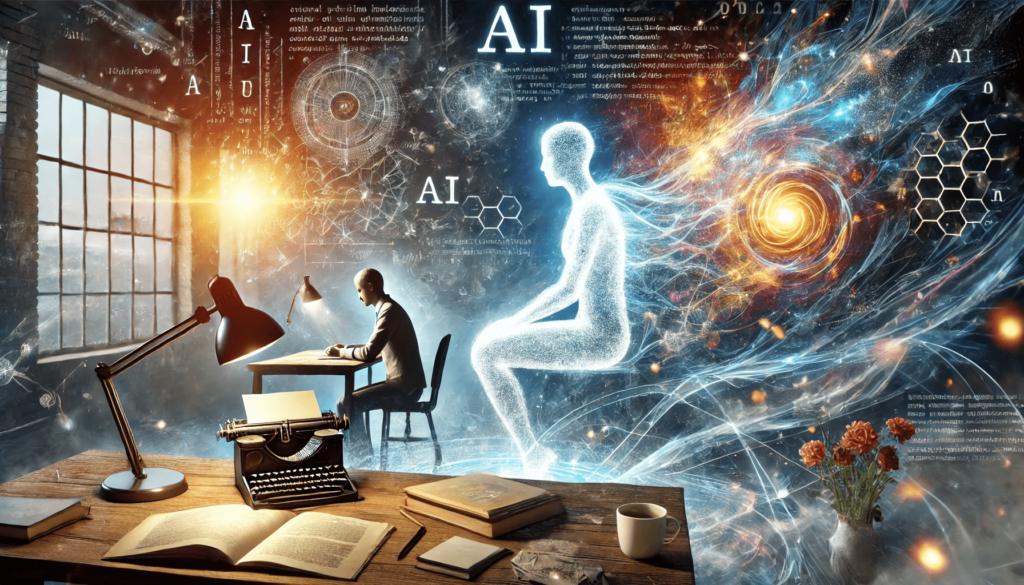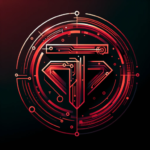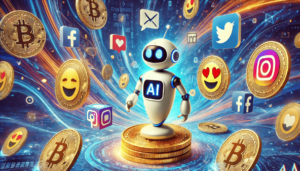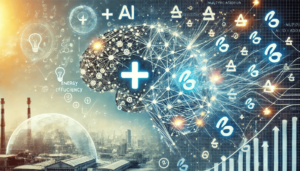Unlocking Creativity: How Writers Harness AI Tools Like ChatGPT

Exploring how writers harness AI to enhance creativity without losing authenticity.
- How are professional writers incorporating AI tools like ChatGPT into their creative processes?
- What are the potential implications of AI-assisted writing for the future of literature and authorship?
- How can writers maintain their unique voice and authenticity while collaborating with AI?
In the ever-evolving landscape of technology, artificial intelligence (AI) has emerged as a powerful ally for professionals across various fields. As someone who deeply cherishes the art of writing, I’ve been intrigued by how AI can augment the creative process without overshadowing the human touch. Recently, I came across an enlightening piece on OpenAI’s website that delves into how professional writers are leveraging ChatGPT to enhance their work. Inspired by their experiences, I wanted to explore this synergy between AI and human creativity and consider what it means for the future of writing.
The AI-Writing Partnership: Beyond Automation
The initial reaction to AI in writing often oscillates between excitement and apprehension. Will machines replace human writers? Can AI truly understand the nuances of human expression? However, the reality, as highlighted by OpenAI, is that writers are not using AI to write for them but to write with them. ChatGPT serves as a sounding board, a virtual collaborator that helps writers brainstorm ideas, refine language, and overcome creative blocks.
A 24/7 Writing Companion
Writing can be a solitary endeavor, and one of the challenges is the lack of immediate feedback or someone to bounce ideas off. Screenwriter David Cornue views ChatGPT as a “writers’ room” that’s always accessible. He uses it to get feedback on his beat sheets and scripts, asking it to play the role of a veteran screenwriter or director. This interaction doesn’t replace the human element but enhances it by providing diverse perspectives whenever needed.
The accessibility of AI tools democratizes the collaborative process, allowing writers at any stage of their career to access feedback and insights that might have been unavailable otherwise.
Wordfinding and Precision
As writers, we often grapple with finding the perfect word or phrase to convey a particular emotion or idea. Former New York Times columnist Farhad Manjoo uses ChatGPT for “wordfinding,” a process that goes beyond what a traditional thesaurus offers. By inputting a sentence or concept, he receives nuanced suggestions that help him articulate his thoughts with greater clarity and precision.
AI could become an essential tool in linguistic refinement, helping writers and even non-native speakers express themselves more effectively, potentially leading to richer and more diverse literary works.
Reverse Interviewing: Unlocking Inner Creativity
One of the most fascinating uses of ChatGPT is “reverse interviewing,” a technique employed by writer and founder Stew Fortier. Instead of asking the AI questions, he prompts it to ask him thought-provoking questions. This process helps draw out insights and ideas that might be buried beneath the surface, acting as a catalyst for creativity.
As someone who loves to write, I find this approach particularly appealing. It transforms the AI from a passive tool into an active participant in the creative process, encouraging deeper self-exploration and idea generation.
Comedy and Contextual Research
Comedy writer Sarah Rose Siskind uses ChatGPT to research joke setups, understanding common themes and societal nuances to craft more impactful humor. While she doesn’t rely on the AI for punchlines, it aids in building the context necessary for a joke to land effectively.
This highlights AI’s strength in handling vast amounts of data and identifying patterns, which can be invaluable in creative fields that rely on cultural and contextual relevance.
Worldbuilding and Research Efficiency
For novelists and essayists like Elle Griffin, ChatGPT accelerates the research phase, providing immediate answers and guiding her to relevant sources. This efficiency allows writers to spend more time on actual creation rather than exhaustive searching.
As AI continues to improve in accuracy and reliability, it could revolutionize the way we approach research, making in-depth knowledge more accessible and reducing barriers to entry for aspiring writers.
The Human Touch: Preserving Authenticity in AI Collaboration
A common thread among these writers is the emphasis on maintaining their unique voice and creativity. They set boundaries with AI, ensuring it serves as an enhancer rather than a replacer of human ingenuity.
It’s crucial to be mindful of over-reliance on AI, which could inadvertently lead to homogenization of writing styles. Preserving the diversity of human expression is essential for the richness of literature and art.
Implications for the Future of Writing
The integration of AI tools like ChatGPT into the writing process opens up several intriguing possibilities and challenges.
AI can lower the barriers to creative expression, providing tools and assistance to those who may lack formal training or access to mentorship. This could lead to a surge in new voices and stories entering the literary world.
Ensuring equal access to these technologies is vital to prevent widening the gap between those who can afford advanced tools and those who cannot.
Redefining the Role of Editors and Educators
As AI takes on roles like providing feedback and aiding in research, the roles of editors and educators may shift. They might focus more on higher-level guidance, ethical considerations, and nurturing the writer’s unique voice.
Educational curricula could incorporate AI literacy, teaching upcoming writers how to effectively collaborate with AI tools while emphasizing critical thinking and originality.
Intellectual Property and Authorship
With AI contributing to the creative process, questions about authorship and intellectual property may arise. Who owns the ideas generated through AI collaboration?
Critical Perspective: Clear guidelines and legal frameworks will be necessary to navigate these complexities, ensuring that human creators retain rights over their work.
While AI offers numerous benefits, there’s a risk of over-dependence, where writers might rely too heavily on AI, potentially stifling their own creativity.
It’s essential for writers to use AI as a tool that complements their skills, not as a crutch that diminishes their growth. The joy of writing lies in the journey of self-expression and discovery.
Embracing the Symbiosis of AI and Human Creativity
As we stand at the intersection of technology and artistry, it’s evident that AI has a significant role to play in the future of writing. The experiences shared by professional writers, as reported by OpenAI, demonstrate that when used thoughtfully, AI can enhance creativity without compromising authenticity.
For those of us who cherish the written word, this is an exciting time. We have the opportunity to expand our horizons, experiment with new techniques, and perhaps most importantly, connect more deeply with our own creative processes. By embracing AI as a partner rather than a threat, we can unlock new realms of possibility in storytelling and expression.




